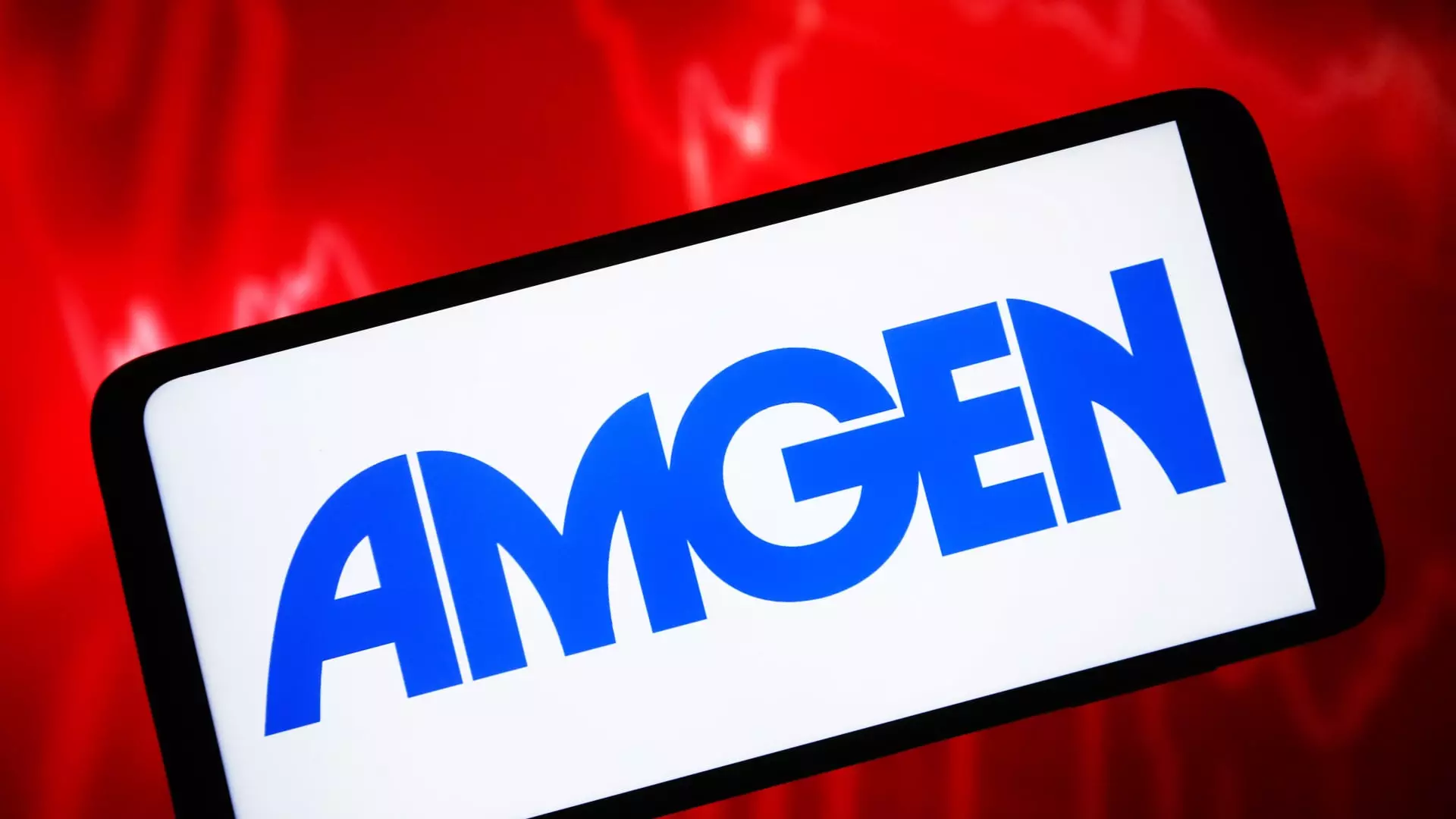Amgen’s stock saw a significant increase of more than 12% following the release of positive initial data on its experimental weight loss injection. This development raised concerns among investors regarding potential competition in the weight loss drug market, causing shares of established players like Novo Nordisk and Eli Lilly to decline. Eli Lilly experienced a nearly 3% drop in share value, while Novo Nordisk’s U.S.-traded shares fell by over 1%.
Amgen’s CEO, Bob Bradway, expressed optimism during a first-quarter earnings call, stating that he was “very encouraged” by the early findings from a mid-stage study on the company’s obesity injection, MariTide. The company’s Chief Scientific Officer, Jay Bradner, highlighted that patient dropout has not been an issue, and Amgen is on track to release initial data from the study in late 2024. This has instilled confidence in investors regarding the potential of MariTide to address unmet medical needs in the weight loss drug market.
Amgen’s MariTide injection offers a distinct profile that aims to provide enhanced convenience for patients. Unlike existing weekly injections in the market, MariTide is designed to be administered using a hand-held autoinjector once a month or even less frequently. The convenience factor, along with the potential for improved treatment intervals, has garnered positive attention from analysts. William Blair analyst Matt Phipps stated that the therapy could differentiate itself meaningfully from other competitors in development, leading the firm to upgrade its rating on Amgen shares to “outperform.”
Amgen has initiated the expansion of manufacturing facilities for MariTide, indicating a proactive approach in preparing to meet the potential demand for the drug. This move is crucial as both Novo Nordisk and Eli Lilly have faced challenges in ensuring an adequate supply of their respective weight loss injections over the past year and a half. By focusing on ramping up production capacity, Amgen aims to address the supply issues that have plagued its competitors.
Eli Lilly’s positive outlook on overcoming supply constraints for its popular drugs, including Zepbound and Mounjaro, has resonated well with investors. The company’s increased production capacity and expansion of manufacturing sites have contributed to a boost in full-year guidance. On the other hand, Novo Nordisk’s sales of Wegovy fell short of analyst expectations during the first quarter, signaling challenges in meeting the growing demand for the treatment. The company cited fierce competition from Eli Lilly’s Zepbound as a factor affecting pricing dynamics in the U.S., leading to lower net pricing for both Wegovy and Ozempic throughout the year.
Amgen’s progress with its weight loss injection, MariTide, has the potential to disrupt the pharmaceutical industry by offering a differentiated treatment option with enhanced convenience for patients. As the company continues to advance its research and manufacturing capabilities, it may pose a significant challenge to existing players in the weight loss drug market. Investors and industry analysts are closely monitoring Amgen’s developments, anticipating the impact of MariTide on the competitive landscape of obesity medications.

